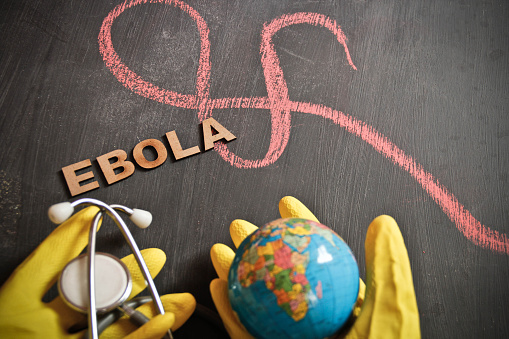 The fight against the African Ebola outbreak may be entering its final stage. The World Health Organization (WHO) has reported that no new Ebola cases have appeared since last week. This is the first time such a thing has happened since the outbreak began in March 2014.
The fight against the African Ebola outbreak may be entering its final stage. The World Health Organization (WHO) has reported that no new Ebola cases have appeared since last week. This is the first time such a thing has happened since the outbreak began in March 2014.
Although no new cases have appeared, some of the individuals who have been in contact with known Ebola cases continue to be monitored for symptoms. In Sierra Leone, all Ebola contacts have been cleared after going 21 days without illness. In Guinea, more than 500 contacts are currently under observation.
Even if no new cases develop from these groups, it will take some time and much vigilance before the outbreak can be declared over. New cases can still appear, and the virus can still be transmitted sexually for several months following infection. This is because the body is slow to destroy invaders in certain parts of the body, such as the eyes. One American doctor who survived Ebola was found weeks later to have the virus present in the left eye.
Survivors have been reporting lingering symptoms in what is being labelled as “post-Ebola syndrome.” The reported symptoms of post-Ebola syndrome can persist for months or years after recovering and include muscle and joint pain, fatigue, hearing loss, and vision problems. In some cases, an inflammation of the eye called uveitis can occur that is capable of progressing to full blindness. There are also anecdotal reports from female survivors who say they have stopped menstruating.
Ebola is not the only virus known to have lingering after-effects. Lyme disease and Lassa fever are both known to continue affecting patients even after the virus is thwarted. The conditions are not believed to be an auto-immune response to lingering traces of the original virus. In essence, the body is committing overkill against remnants and getting itself hurt in the process. Due to Ebola’s high fatality rate in past outbreaks, formal research into post-Ebola syndrome has been difficult. As the current outbreak has more survivors than those in the past, it is hoped that this will create an opportunity to better study the condition.
Of additional concern are the social and psychological struggles Ebola survivors and their families face. Fear of the virus has led to stigmatization strong enough that some survivors have reported being forced from their communities. The levels of depression and post-traumatic stress disorder are also much higher among survivors and their families. Ensuring these individuals receive proper support will be an additional challenge to the continent’s recovery.
The Ebola outbreak began in Guinea in 2014 and subsequently spread across the African continent. To date, more than 11,200 people have died from the virus.
Sources for Today’s Article:
“Ebola Survivors Advised against Unprotected Sex,” CBC News web site, May 1, 2015; http://www.cbc.ca/news/health/ebola-survivors-advised-against-unprotected-sex-1.3057304.
Farge, E., “Free from Ebola, Survivors Complain of New Syndrome,” Reuters web site, February 4, 2015; http://www.reuters.com/article/2015/02/04/us-health-ebola-survivors-idUSKBN0L81WA20150204.
“New Ebola Cases down to Zero Last Week: WHO,” CBC News web site, October 7, 2015; http://www.cbc.ca/news/health/ebola-cases-zero-1.3261655.
Varkey, J.B., et al., “Persistence of Ebola Virus in Ocular Fluid during Convalescence,” New England Journal of Medicine 2015; 372: 2423–427, doi:10.1056/NEJMoa1500306.
